建筑师:KINO建筑师
位置:日本,千叶县,千叶市
负责建筑师:正弘木下
总面积:600ha
建筑面积:1300ha
总占地面积:3000ha
年份:2009
摄影:Daici Ano, 博之平井
“螺旋”填补了需求。
这个建筑是为一个世界领先的材料开发公司建造的一个新的化学研究实验室。这是在东京湾附近工业区中的一大片占地。
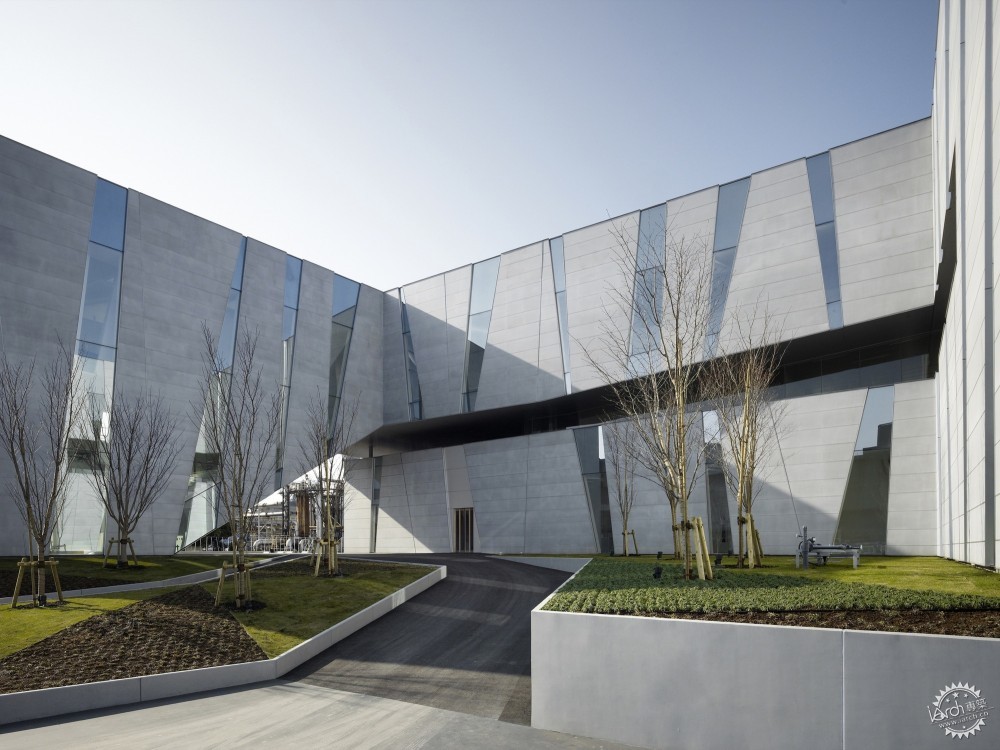
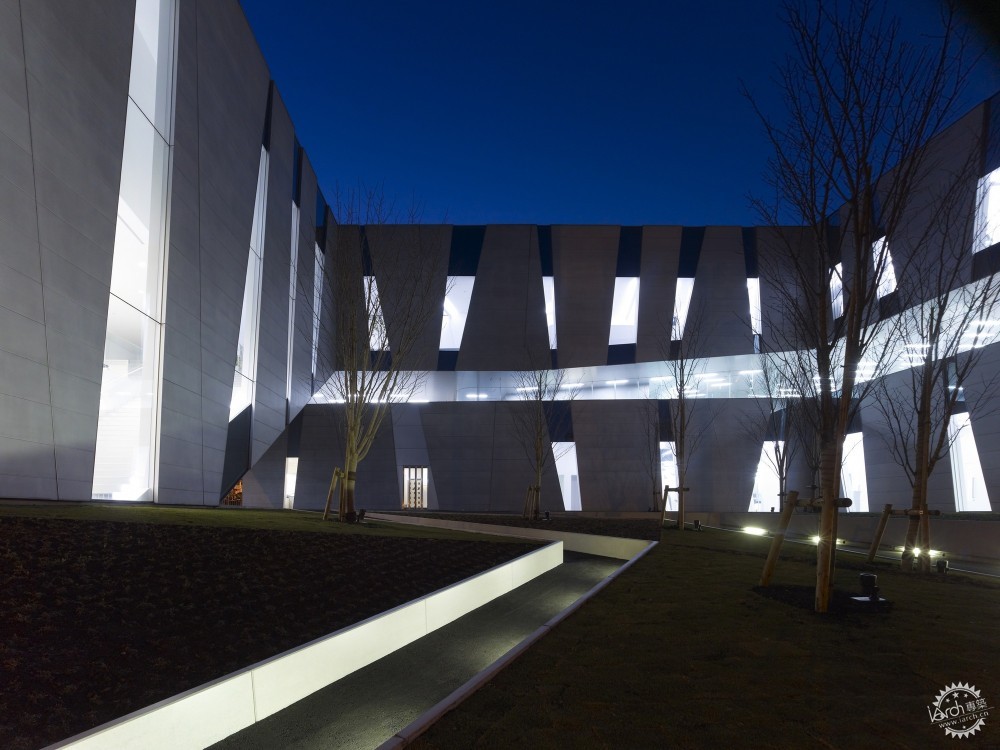
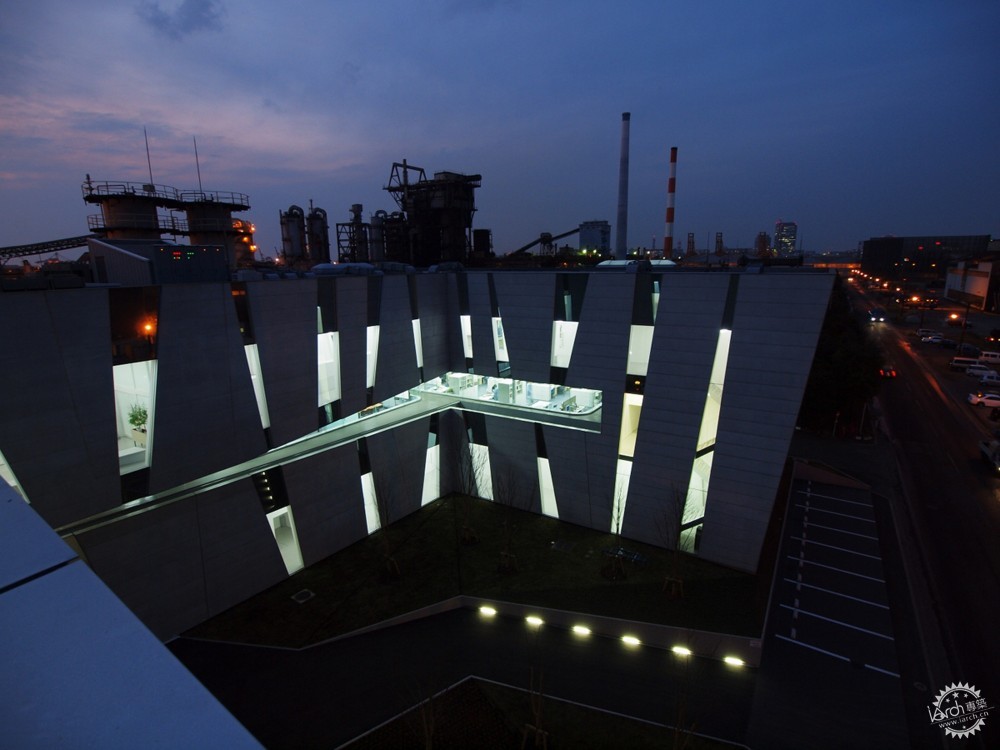
我们通过使用灵活的实验室回应了他们为了“研究效率”所提出了要求,在这里,研究人员可以根据自己的需要调整自己的研究空间。
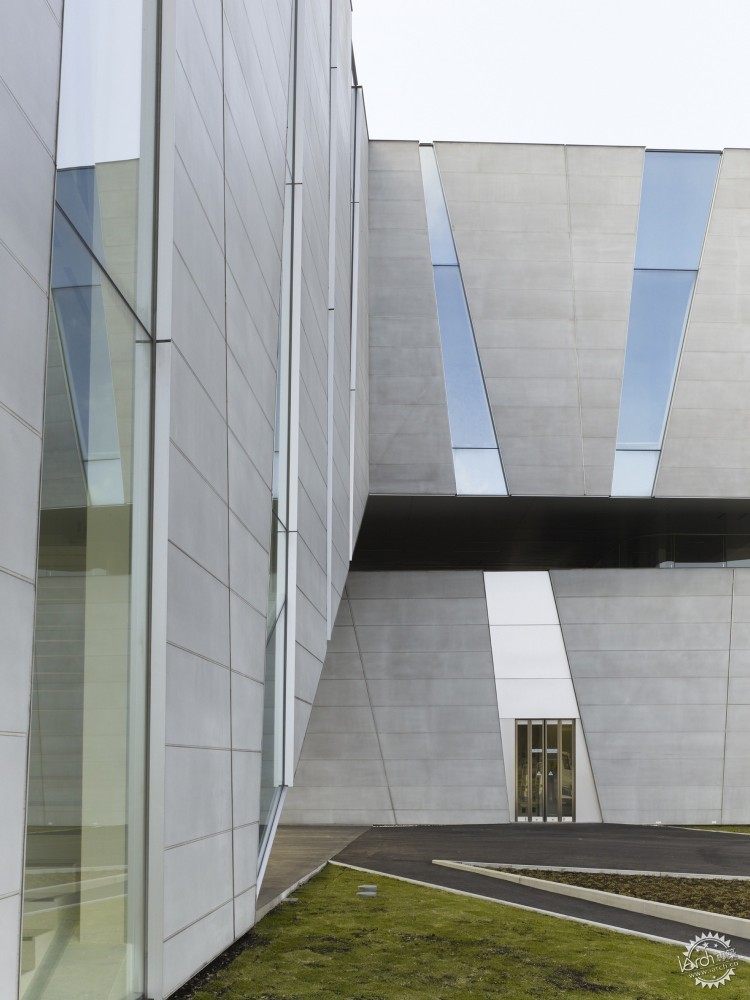
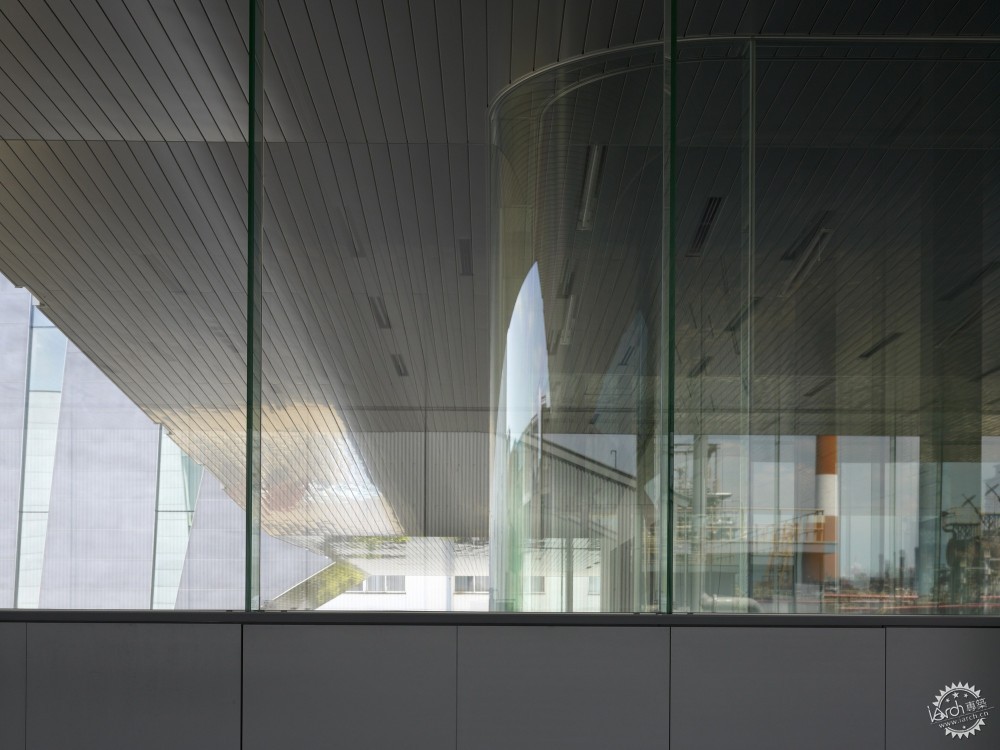

为了达到“高安全性”和“舒适”的要求,我们在整个大楼中建造了高安全性,高舒适度的办公室和休息区。我们用标志性建筑回应了“象征性”的要求,这有利于提高公司面向世界的能力。
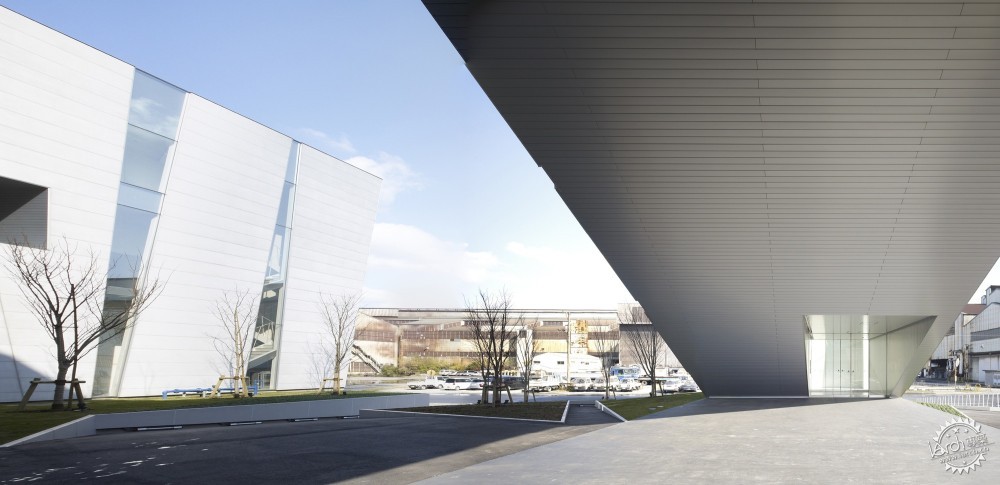
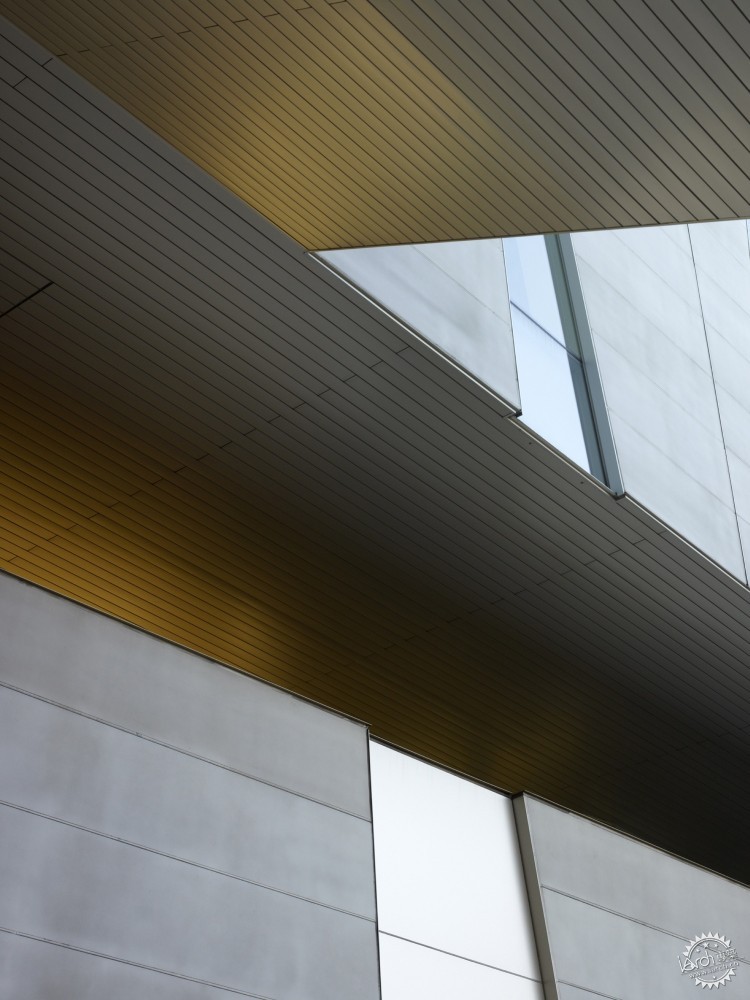
首先,我们水平排列了主要房间:实验室,办公室,会议室,礼堂和沿着同一个走廊的接待室,并把客人入口和研究人员入口安置在了另一端。
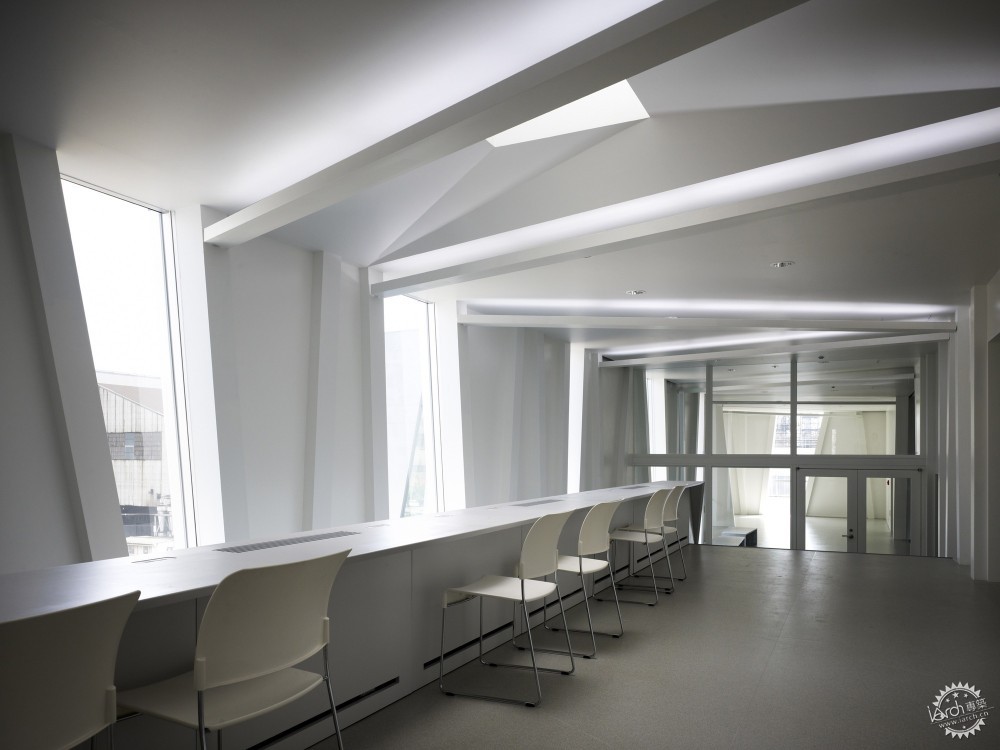
通过采用这样一个共同走廊的设计,客户可以根据自己的需要,在实验室中自由选择入口和移动分区。由于直线形状的设计以及客人和研究人员入口的区分,安全门很容易调节。
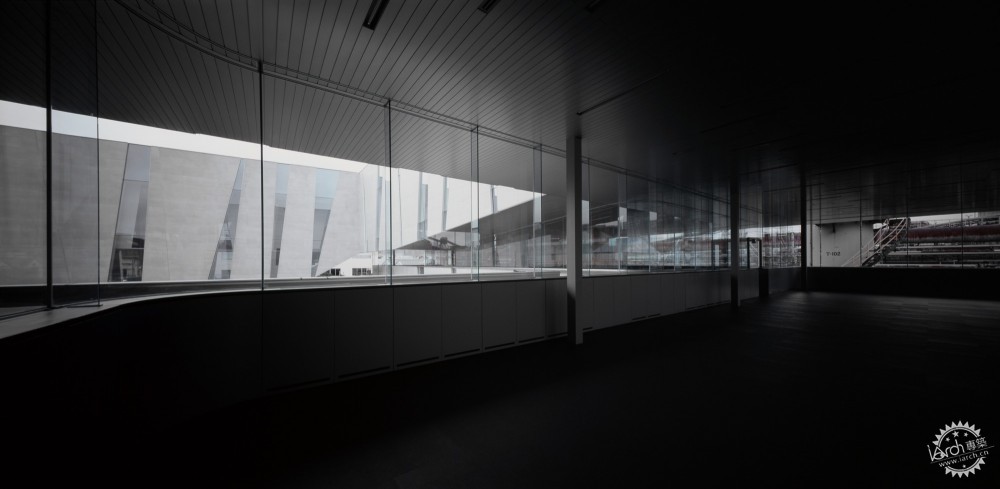
其次,我们在三维空间中转变这种线性规划。办公室和会议室需要最高的保密性,因此它们和线性规划分离开来。线性规划围绕着办公室和会议室呈螺旋形。其结果是,办公室和会议室在水平方向上不与任何一个房间直接接触。
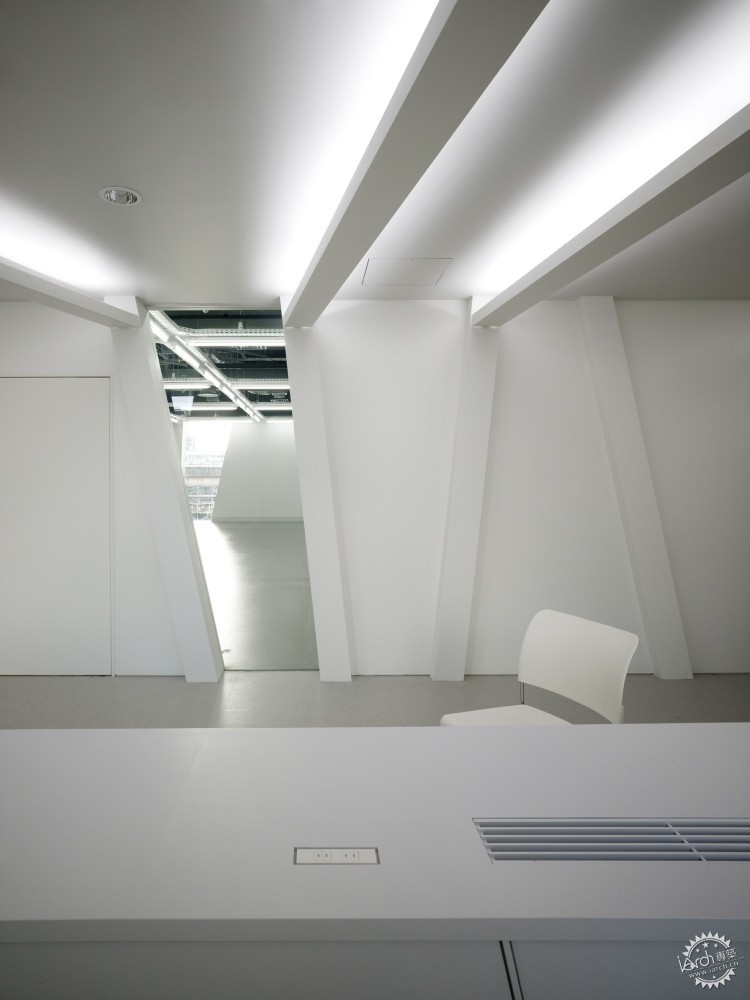
垂直来看,这些房间都在螺旋形的中心。因此,人们从较高或较低的楼层中进入实验室就变得简单了。除此之外,尽管这些房间很高的安全性,但是墙壁是透明的,给人们一种舒适的室外氛围。
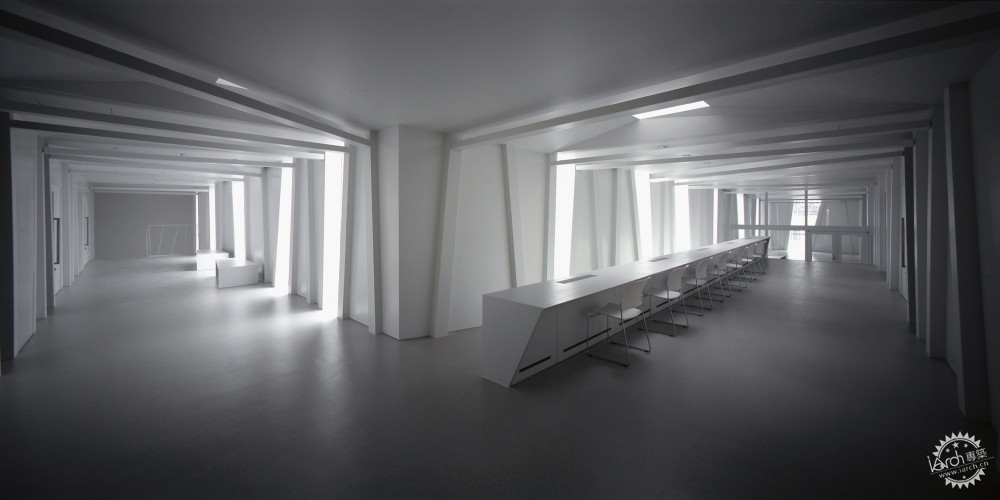
休息区是通过扩大主要走廊而建造出来的。结果就是,研究人员可以在换房间的时候休息一下。除此之外,直线形的休息区围绕庭院盘旋着。因此,这种垂直的设计可以使研究人员从不同的角度看到庭院。
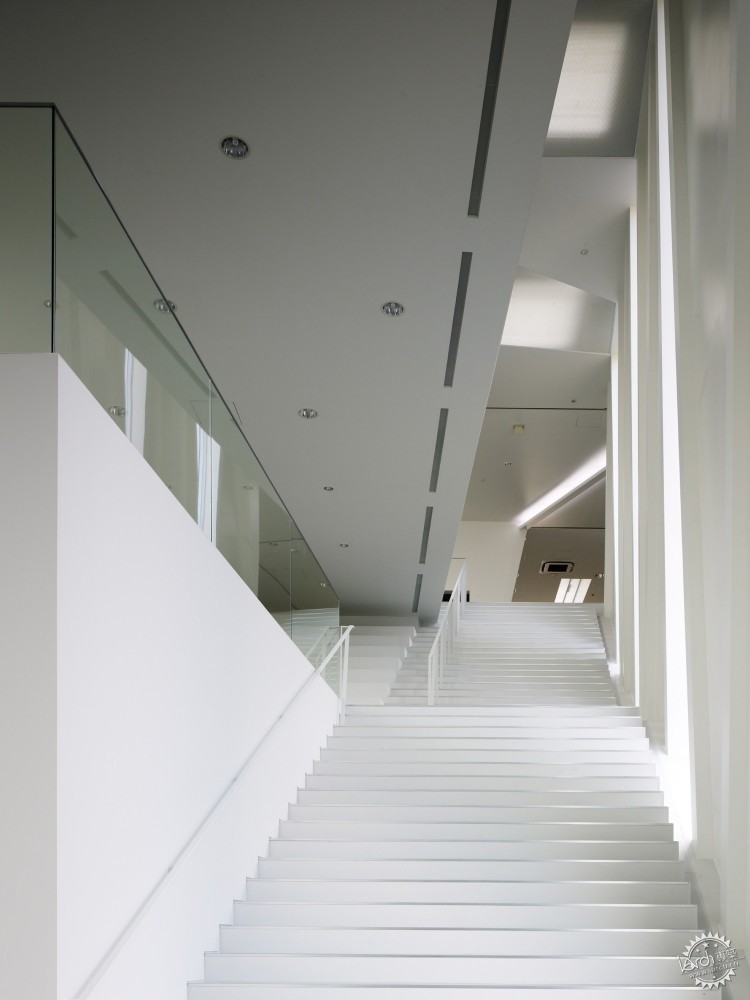
“螺旋”符合的象征意义。
螺旋的形状符合三种要求:“研究效率”,“高安全性”和“舒适”。同样,螺旋的形式是最后一个要求的关键——“象征性”。
我们认为,真正的标志性建筑来自于建筑本身;因为它是通过逻辑性思考之后设计出来的。这既不是简单的“包装”,也不是凭空想象。
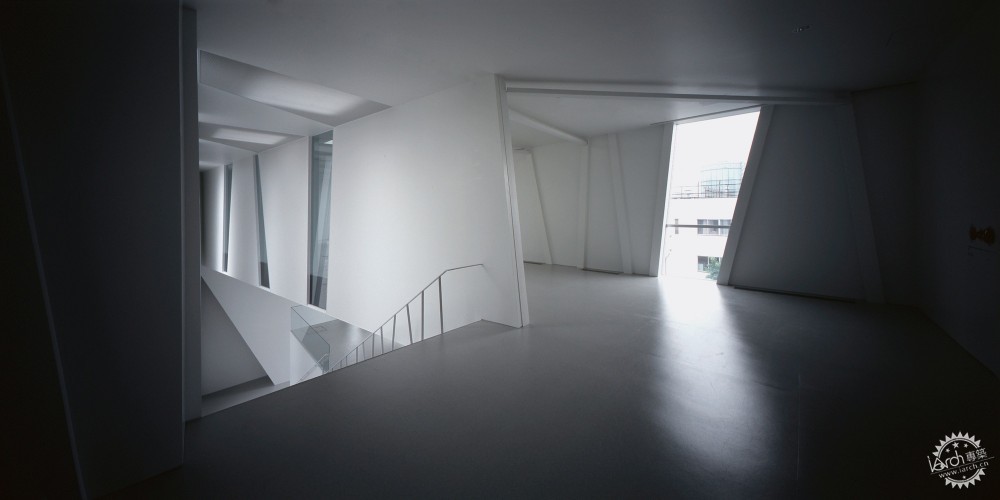
我们希望这个“螺旋实验室”的建筑可以帮助它的研究人员通过逻辑思考研发出新的材料,并且会将这个概念宣传到世界中去。
立视图 Elevation
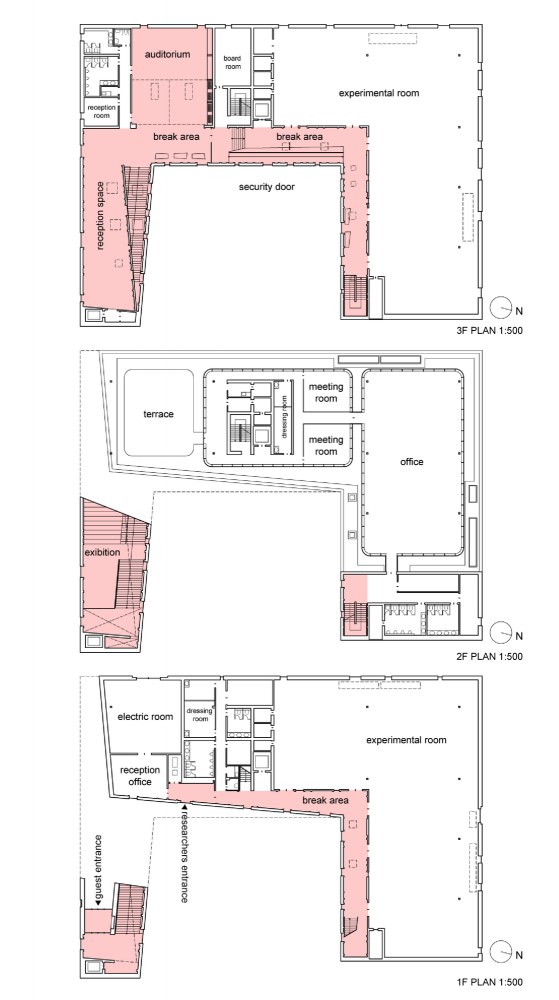
平面图 Plans
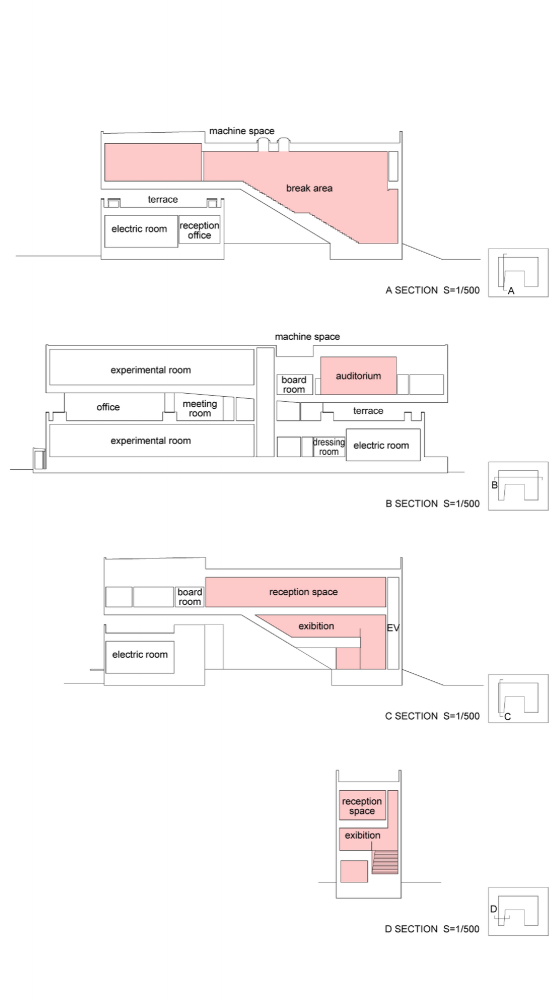
局部图 Sections
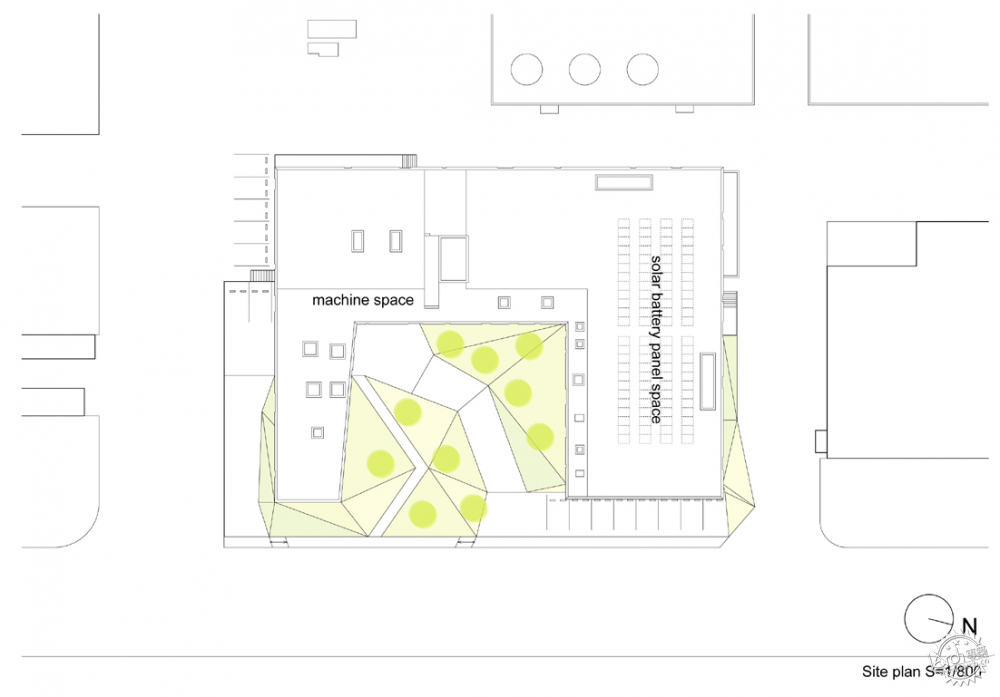
总平面图 Site plan
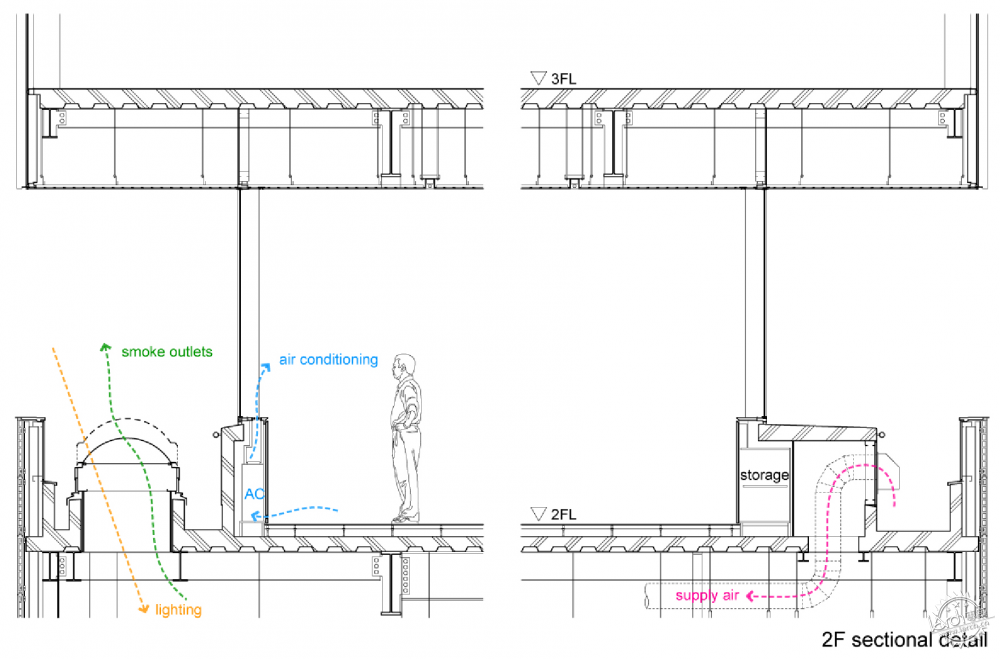
局部细节图 sectional detail
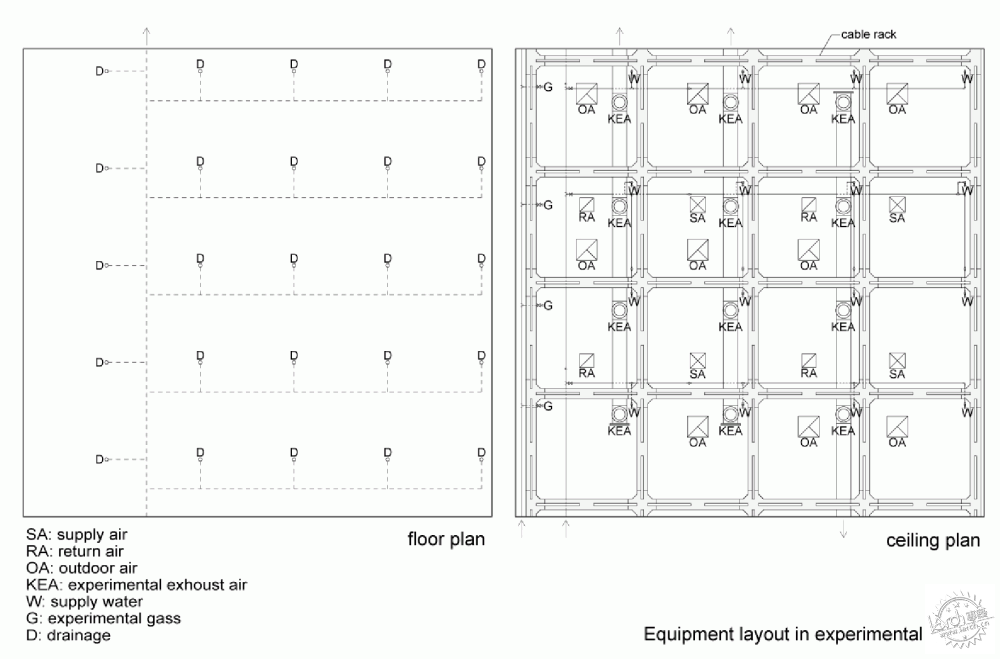
设备布局 equipment layout
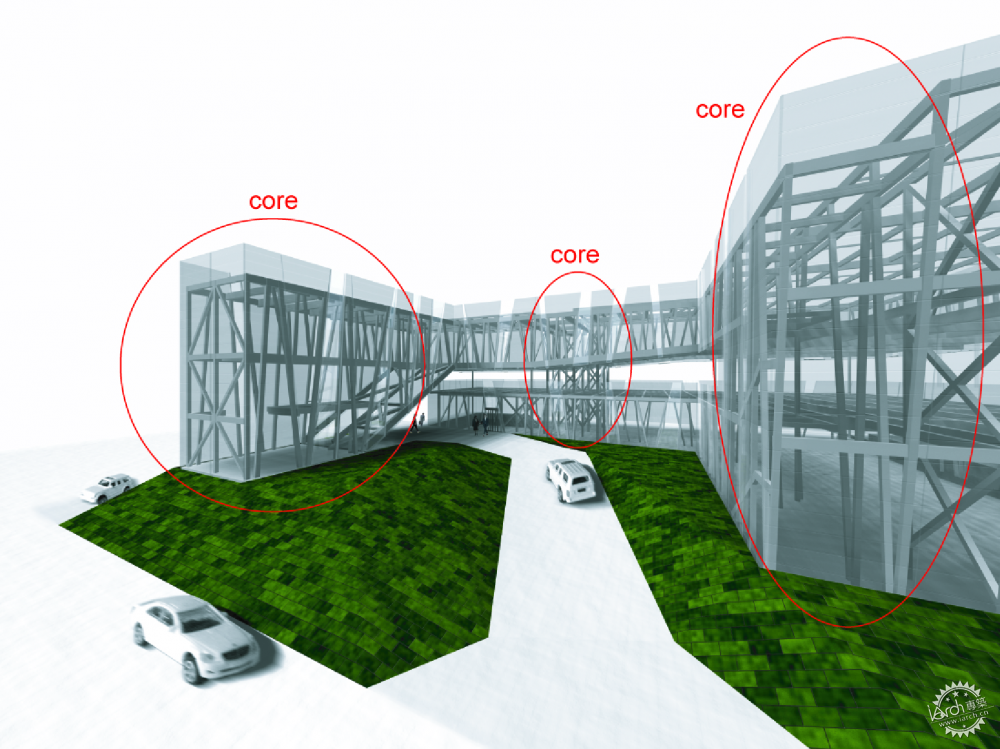
建筑核心 structure core

图表 Diagram
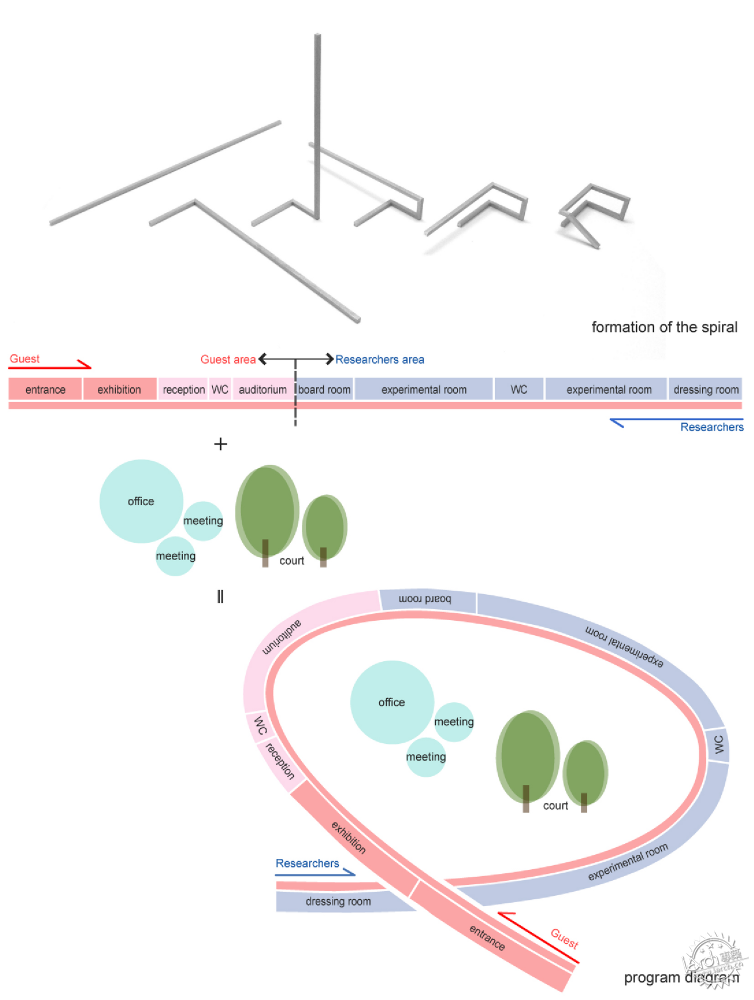
图表 Diagram
特别鸣谢翻译一组4号 李鹤 提供的翻译,译稿版权归译者所有,转载请注明出处。
Architects: KINO Architects
Location: Chiba, Chiba Prefecture, Japan
Architect In Charge: Masahiro Kinoshita
Site Area: 600 ha
Building Area: 1,300 ha
Total Floor Area: 3,000 ha
Year: 2009
Photographs: Daici Ano, Hiroyuki Hirai
A “Spiral” fills the needs.
This building is a new chemical research laboratory for a world leading materials development corporation. It is on a large site in an industrial area near Tokyo bay.
We responded to the request for “research efficiency” by using flexible experimental rooms where researchers can adjust their research space according to their needs. To the requests for “high security” and “comfort” we responded with high-security, and high-comfort offices and break areas throughout the entire building. We responded to the request for “symbolism” with symbolic architecture that helps promote the companies abilities to the world.
First, we horizontally aligned the main rooms: laboratories, an office, meeting rooms, an auditorium and a reception room along a common corridor and put the guest entrance and the researchers entrance at either end. By adopting a plan with a common corridor, the clients can freely select doorways and move partitions in the experimental rooms according to their needs. The security door is easily adjustable due to the linear shape of the plan and the separation of guest and researcher entrances.
Next, we transformed this linear plan in three-dimensions. The office and the meeting rooms need the highest confidentiality, so these were separated from the linear plan. The linear plan spirals around the office and meeting rooms. As a result the office and the meeting rooms are untouched by other rooms on every side, horizontally. Vertically these rooms are in the centre of the spiral. Therefore the access to the experimental rooms on the upper and lower floors becomes easy. Additionally while these rooms have high-security the walls are transparent, giving a comfortable open-air atmosphere.
The break areas were made by widening the main corridor. As a result, researchers can take a break while changing rooms. In addition, the linear break areas spirals around the court yard. Therefore, this vertical plan allows the researchers to see the court yard from various points of view.
A “Spiral” meets symbolism.
The spiral shape responds to the three requests: “research efficiency”, “high-security” and “comfort”. Also, the spiral form becomes the key to the last request – “symbolism”. We think that true symbolism of architecture comes from the architecture itself; designed through logical thinking. It’s neither a simple “wrapping” nor pure imagination. We hope this building, “Spiralab”, helps its researchers develop new materials through logical thinking and will advertise this concept to the world.
|
|
专于设计,筑就未来
无论您身在何方;无论您作品规模大小;无论您是否已在设计等相关领域小有名气;无论您是否已成功求学、步入职业设计师队伍;只要你有想法、有创意、有能力,专筑网都愿为您提供一个展示自己的舞台
投稿邮箱:submit@iarch.cn 如何向专筑投稿?
